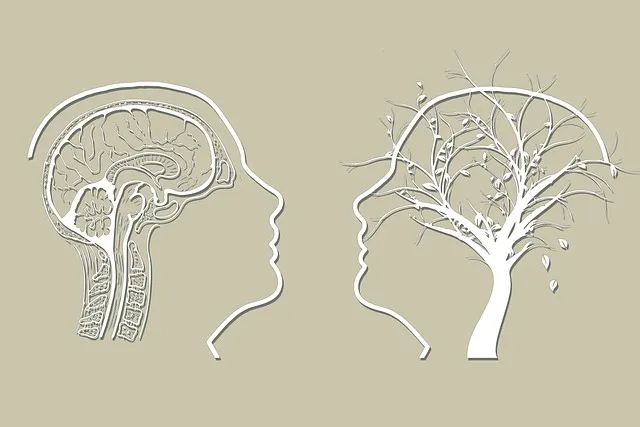The Kaiser Permanente mental health facility in Longmont prioritizes crisis intervention with specialized teams, evidence-based practices, and a holistic approach. They assess risk through trained professionals identifying subtle behavioral changes, and use strategies like cognitive behavioral therapy (CBT) and mindfulness education to prevent future crises. Post-crisis care focuses on comprehensive support systems, destigmatization, and individualized recovery plans, fostering long-term resilience and well-being.
“Crisis intervention plays a vital role in mental health care, especially at facilities like the Kaiser Permanente Mental Health Facility in Longmont. This comprehensive guide explores strategies for navigating crisis situations, focusing on evidence-based practices and community support systems. We delve into identifying risk factors, assessing patient needs, and implementing effective interventions. Additionally, we highlight the importance of post-crisis care and recovery planning, emphasizing the holistic approach adopted by Kaiser Permanente Longmont to ensure patient well-being.”
- Understanding Crisis Intervention at Kaiser Permanente Mental Health Facility Longmont
- Identifying Signs and Assessing Risk in a Crisis Situation
- Evidence-Based Strategies for Effective Crisis Intervention
- Role of Support Systems and Community Resources
- Post-Crisis Care and Recovery Planning
Understanding Crisis Intervention at Kaiser Permanente Mental Health Facility Longmont

At Kaiser Permanente Mental Health Facility Longmont, crisis intervention is a cornerstone of patient care. The facility leverages specialized teams and evidence-based practices to provide immediate support for individuals experiencing acute mental health crises. Understanding crisis intervention here means embracing a holistic approach that not only addresses the present situation but also focuses on long-term resilience building.
This comprehensive strategy includes interventions tailored to address burnout prevention, stress management, and confidence boosting. By integrating these techniques, Kaiser Permanente Mental Health Facility Longmont ensures patients receive not just immediate relief from their crises, but also the tools and resources needed to navigate future challenges effectively.
Identifying Signs and Assessing Risk in a Crisis Situation

In a crisis situation, such as those that often present at Kaiser Permanente mental health facilities like Longmont, identifying signs and assessing risk are paramount to effective intervention. Trained professionals must be adept at recognizing subtle cues that hint at distress, as individuals experiencing acute mental health crises may not always openly communicate their struggles. This includes observing changes in behavior, mood swings, or any indication of self-harm or suicide ideation. The assessment process involves a thorough review of the individual’s history, recent events, and current circumstances to gauge the level of risk and determine the appropriate course of action.
By understanding the nuances of mental health crises, Kaiser Permanente Longmont can enhance its crisis intervention strategies, aligning with the broader goals of Mental Health Policy Analysis and Advocacy. Implementing practices that promote mindfulness meditation has been shown to reduce symptoms of anxiety and depression, which could serve as preventive measures in mitigating future crises. Additionally, fostering a culture of open dialogue around mental health, as supported by Depression Prevention initiatives, can encourage individuals to seek help before situations escalate.
Evidence-Based Strategies for Effective Crisis Intervention

In the realm of crisis intervention, evidence-based strategies play a pivotal role in ensuring effective support, especially at facilities like the Kaiser Permanente mental health facility in Longmont. These strategies are designed to offer immediate and lasting solutions, catering to diverse individual needs. One such approach involves fostering positive thinking through cognitive behavioral therapy (CBT), which helps individuals challenge negative thought patterns and develop healthier coping mechanisms. This method has proven effective in numerous studies, providing a solid foundation for crisis interventionists at Kaiser Permanente Longmont.
Moreover, integrating mental health education programs into the intervention process empowers individuals to understand their conditions better. The design of these programs should focus on self-care routine development, encouraging practices like regular exercise, mindfulness, and adequate sleep—all contributing to improved mental well-being. By combining evidence-based interventions with educational initiatives, Kaiser Permanente’s mental health facility in Longmont can offer comprehensive guidance, enabling individuals to navigate crises more effectively and promote long-term positive outcomes.
Role of Support Systems and Community Resources

Support systems and community resources play a pivotal role in crisis intervention strategies. Organizations like Kaiser Permanente’s mental health facility in Longmont offer specialized services, providing individuals with access to professional help during challenging times. These facilities are designed to empower people through coping skills development and emotional regulation techniques, fostering resilience and promoting long-term well-being.
Leveraging community resources further enriches the support network. Local initiatives, peer support groups, and community-based programs often utilize Mind Over Matter principles to equip individuals with effective strategies for managing crises. By combining professional care with community engagement, a comprehensive framework is established to address mental health challenges holistically, ensuring that folks have the tools needed to navigate turbulent times successfully.
Post-Crisis Care and Recovery Planning

Post-crisis care and recovery planning are essential components of effective crisis intervention strategies, as highlighted by Kaiser Permanente mental health facility in Longmont. This phase involves creating a comprehensive support system to aid individuals in their journey towards healing and restoration. By integrating public awareness campaigns focused on destigmatizing mental health issues, the facility promotes open dialogue and encourages those affected to seek help without hesitation.
Additionally, fostering self-care practices and nurturing inner strength development are integral parts of this process. The Kaiser Permanente approach emphasizes the importance of individualized recovery plans that consider unique circumstances and needs. These strategies not only provide immediate relief but also equip individuals with the tools to manage future challenges, ensuring long-term resilience and improved overall well-being.
In conclusion, crisis intervention plays a pivotal role in supporting individuals at the Kaiser Permanente mental health facility Longmont and beyond. By understanding the unique context of this healthcare setting and employing evidence-based strategies, such as identifying risk factors, mobilizing support systems, and planning for recovery, we can effectively navigate and mitigate crises. The comprehensive approach detailed in this article equips professionals with the tools to provide immediate assistance while fostering long-term well-being, ultimately enhancing the resilience of individuals facing mental health challenges.






